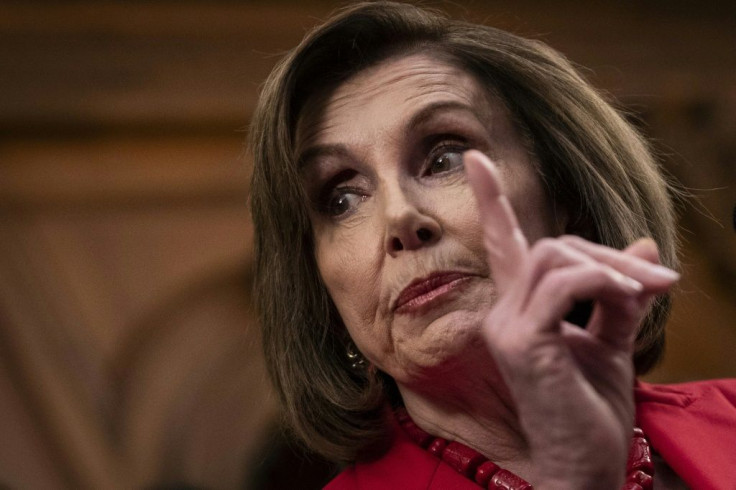Pelosi Says House Close To USMCA Deal, But US, Canada Have Yet To Ratify

Speaker of the House Nancy Pelosi said a deal between House Democrats and the White House on ratifying the United States-Mexico-Canada Agreement, a replacement of the North American Free Trade Agreement, is imminent.
Democrats in Congress have been in talks with the Office of the U.S. Trade Representative to upgrade labor and environmental standards under the pact, as desired by labor unions.
“I do believe that if we can get this to the place it needs to be, which is imminent, that this can be a template for future trade agreements. A good template,” Pelosi told reporters in California.
She added she would like to see the pact ratified this year.
The White House reportedly also wants the treaty adopted by the end of the year, but Congress already has to deal with a possible government shutdown and the ongoing Trump impeachment sessions.
Republicans want the trade pact done quickly.
Rick Dearborn, the former White House deputy chief of staff for policy, told CNBC last week that the House needs to pass the treaty immediately.
“I think the treaty is the linchpin to every other agreement that is going to come down the road,” Dearborn said. “We get the treaty done, it makes it easier to not only finish this phase one [deal] on China, but then move forward on phase two. We’ve already moved forward on phase one with Japan, it helps us move forward on phase two with Japan.”
Dearborn also noted that approving the treaty will allow the Office of the U.S. Trade Representative to focus on trade talks with other nations, including U.K., Philippines, Vietnam, and Kenya.
Dearborn hailed the treaty as a rare bipartisan cooperation between Democrats and Republicans.
“I do think the treaty is the best example of a bipartisan effort with both sides really in earnest trying to get to a good conclusion, so I’m much more optimistic about this effort than I am other pieces of legislation that might be out there,” he added.
Mexico has already ratified the treaty, but Canada has yet to do so. A group of Congressional Democrats met with top Canadian officials in early November to discuss the deal.
The delay is holding back some huge business deals. The Automotive Parts Manufacturers Association of Canada said ratification of the treaty could lead to an additional $8 billion in Canadian parts orders annually.
Association President Flavio Volpe explained thebtreaty would require 75 percent of a vehicle’s components to be sourced from within U.S., Mexico or Canada, up from 62.5% in the current deal.
“The content levels are going to drive the business for us,” Volpe said.
The Office of the U.S. Trade Representative described the treaty as a “modernized” version of North American Free Trade Agreement.
Among other things, the proposed agreement provides for protection of intellectual property rights; patent protections; aggressive seizure of counterfeit goods, and safeguarding of trade secrets,
© Copyright IBTimes 2025. All rights reserved.





















